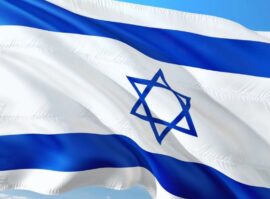 On 21st November, Kosovo imposed a 100% tariff on all goods produced in Bosnia and Herzegovina and Serbia, increasing the 10% tariffs that were imposed on 6th November. The tariffs contradict the Central European Free Trade Agreement (CEFTA) of which all three territories are signatories. Kosovo has issued similar tariffs before and regularly claims that its products are not treated equally in other CEFTA members’ markets, but it is also seeking to use tariffs for political purposes.
On 21st November, Kosovo imposed a 100% tariff on all goods produced in Bosnia and Herzegovina and Serbia, increasing the 10% tariffs that were imposed on 6th November. The tariffs contradict the Central European Free Trade Agreement (CEFTA) of which all three territories are signatories. Kosovo has issued similar tariffs before and regularly claims that its products are not treated equally in other CEFTA members’ markets, but it is also seeking to use tariffs for political purposes.
Kosovo’s Justification
Global Risk Insights writes that Kosovo placed tariffs of 100% on goods produced in Serbia and Bosnia and Herzegovina following Kosovo’s failure to gain enough votes in Interpol’s General Assembly to join the organisation. Kosovo’s government has blamed this on Serbian lobbying against their membership. This failure to join Interpol is the most recent of a string of high profile rejections from international organisations and reversals of recognitions that have resulted, at least partly, from Serbian efforts to discredit Kosovo. The earlier 10% tariffs were, according to Kosovo Prime Minister Ramush Haradinaj, a reaction to “illegal obstructions” and threats being issued by the Serbian government to Serbs in Kosovo who join the Kosovo Security Force (KSF), often seen as the country’s army-in-waiting.
Kosovo’s Minister of Trade and Industry Endrit Shala, asserted that the sanctions on Bosnian goods were retaliation for its refusal to recognise Kosovo-issued documents, thereby preventing Kosovar companies from exporting to the Bosnian market. Neither Bosnia and Herzegovina nor Serbia recognise Kosovo as an independent state. Serbia holds that Kosovo broke away from Serbia illegally, and so is technically still Serbian territory. Bosnia has not recognized Kosovo because it’s Serb-dominated entity Republika Srpska will not agree to allow recognition.
The lack of recognition that Kosovo faces by many states and its resulting inability to secure UN membership has an economic cost. Many international, multilateral financial treaties and instruments are not available because it is not a UN member. In 2017, the Brookings Institution estimated that obstacles caused by non-recognition are equivalent to a 14% tariff on trade with Kosovo. Kosovo-issued travel and import/export documents are not valid in many places, making bilateral trade difficult. Even bank transfers and postal delivery were challenging undertakings until recently.
These obstacles have been especially damaging because Kosovo started from a low base of economic development: it had long been the poorest area of Yugoslavia before independence was even a possibility. Rapid economic growth is needed just for it to catch up with other countries in the region, but this is unlikely to happen. Barriers to trade are not the only culprit for Kosovo’s insufficient economic growth, but they are one of the major contributing factors.
The economic reasoning for the tariffs is that they will protect local goods and producers. Kosovo imports around 6 times as much from CEFTA countries as it exports to them. Kosovo is the largest importer of Serbian products. However, Belgrade’s continuing refusal to recognise Kosovo makes it difficult for them to export goods to Serbia and contributes to a huge trade imbalance. This is particularly galling for Kosovo’s politicians, many of whom, including the current President and Prime Minister, fought for political independence from Serbia.
Serbia has a strong incentive to penetrate Kosovo’s market while maintaining high barriers on trade with Kosovar firms. This is to make it dependent on Serbia, despite Kosovo’s declared independence. The existing trade imbalance means that Serbia does not suffer economically by limiting imports from Kosovo. Serbia is not sanctioned for this behaviour because it does not impose tariffs, only non-tariff barriers that logically result from the fact that it does not recognise Kosovo as a state; it bends the rules of CEFTA, rather than breaking them. The lack of punishment makes it a low-risk policy for Serbia to pursue. Kosovo’s tariffs are an attempt to hit Serbia financially in retaliation for unfair treatment of its goods.
The trade imbalance with Bosnia and Herzegovina is less pronounced, but Kosovo still imports far more than it exports to the country. Both Serbia and Bosnia and Herzegovina have also been accused of subsidising products exported to Kosovo in order to dominate its market. As part of a long-term strategy, tariffs might help Kosovo to stimulate domestic industries. For example, many food products are imported, partly because Kosovo’s agriculture is underdeveloped. Stimulating domestic demand could lead to much-needed investment in this sector, especially as 53% of Kosovo’s area is arable land. On the other hand, many industries are hamstrung by problems that tariffs cannot fix. Kosovo’s water and energy supplies, basic infrastructure that is fundamental to many industries, are tied up in a decades-long dispute over the ownership of Gazivoda lake in northern Kosovo. The strong political message that accompanied the tariffs suggests that it is a knee-jerk reaction rather than a long-term solution. Kosovo has issued similar tariffs in the past, only to rescind them soon after amid pressure from the EU.
Tariffs can be useful tools for Kosovar politicians domestically since they show that Kosovo is standing up to Serbia, while also placing the blame for trade imbalances on its main geopolitical foe. It allows the contribution of Kosovo’s poor economic performance and its lack of exports to be obscured by political posturing. If the tariffs fail to significantly stimulate domestic industries quickly, they could become a millstone around politicians’ necks. Prices will rise and some products will become scarce, these consequences are much more immediate and visible to the average voter than GDP growth.














